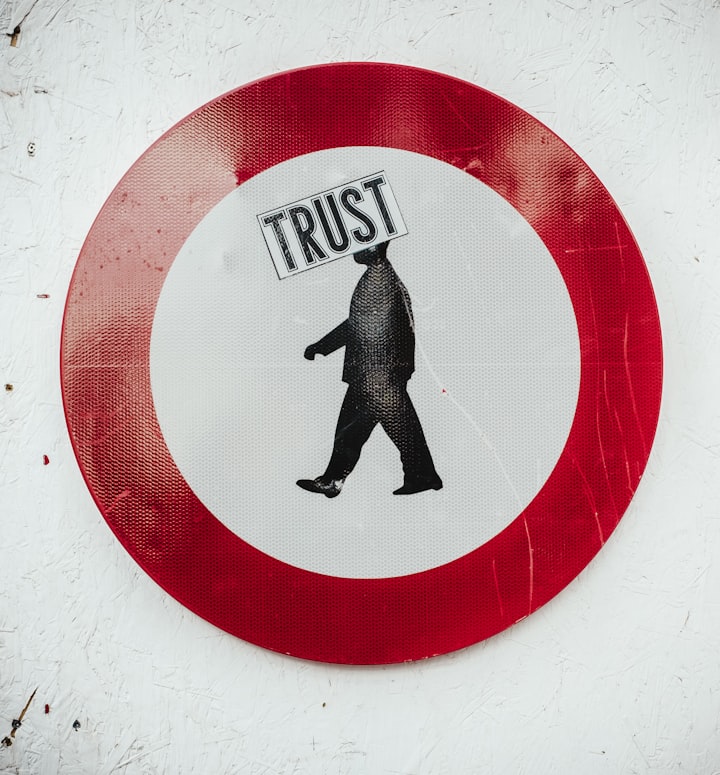The Balancing Act: Learning from Success and Failure
Success and failure are both vital in the learning journey. Success reinforces effective strategies and boosts confidence, while failure builds resilience and fosters a growth mindset. Integrating these lessons enriches personal and professional development.

Introduction
In the journey of learning and self-improvement, we often encounter two powerful forces: the triumph of success and the resilience born from failure. While success is celebrated and sought after, failure, too, has its own, often underestimated, value in shaping our knowledge and character. This article delves into the intricate dance between learning from our victories and drawing lessons from our setbacks. We'll explore how both success and failure are not just inevitable, but essential components of personal and professional growth.
Success, with its affirming glow, reinforces our effective strategies and boosts our confidence, motivating us to strive further. It's a beacon that guides us towards what works, illuminating the path of efficiency and effectiveness. On the other hand, failure, often shrouded in initial disappointment, is equally crucial. It is the grit in the oyster that eventually produces the pearl of wisdom. Failure teaches resilience, fosters adaptability, and hones our problem-solving skills. It challenges us to look beyond the obvious, question our approaches, and cultivates a mindset of continuous learning and growth.
Understanding the synergistic role of both success and failure in learning can transform how we approach our goals and challenges. It's about recognizing that every stumble has the potential to be a stepping stone and every achievement a milestone in the larger journey of learning. In the following sections, we will unravel the dynamics of learning from both these experiences, highlighting how they collectively contribute to our overall development and success.
The Role of Failure in Learning
The path to achievement is often littered with the stepping stones of failure. While the sting of not succeeding can be sharp, the lessons it imparts are invaluable. Here, we delve into the multifaceted role of failure in the learning process.
Embracing Trial and Error
Failure is an integral part of the trial-and-error process, a method fundamental to human learning. This iterative process involves experimenting with different approaches and learning from what doesn't work. Each failure sheds light on a path not to take, gradually steering us toward more effective solutions. The history of scientific discovery and innovation is replete with examples where failures have been just as important as successes in leading to breakthroughs.
Building Resilience
Failure builds resilience. It teaches us to endure setbacks with grit and grace, preparing us for life's inevitable challenges. This resilience is crucial not just in personal endeavours but also in professional settings, where adaptability and the ability to bounce back are highly valued. Learning to cope with failure develops a mental toughness that is invaluable in navigating the ups and downs of career and life.
Enhancing Problem-Solving Skills
Each failure poses a problem to be solved: Why did this not work? What can be done differently next time? This process of questioning and analysis sharpens critical thinking and problem-solving skills. It encourages a deeper exploration of the task at hand and fosters creative thinking. In many cases, failure forces us to look at problems from new angles, leading to more innovative solutions.
Cultivating a Growth Mindset
Perhaps the most significant role of failure is its ability to cultivate a growth mindset. Psychologist Carol Dweck's research highlights how individuals with a growth mindset – those who believe abilities can be developed through hard work and dedication – view failure as an opportunity to grow rather than a label of their abilities. Embracing failure as a part of learning encourages a love for learning and resilience, which are essential for great accomplishment.
In essence, failure is not the antithesis of success but an integral part of it. It's a teacher whose lessons, though sometimes harsh, are fundamental to achieving excellence. As we explore in the next sections, the juxtaposition of failure with the reinforcing nature of success creates a comprehensive learning experience, rich with insights and growth.
The Power of Success in Learning
While the lessons from failure are invaluable, the role of success in the learning process is equally significant. Success not only validates our efforts but also plays a critical role in reinforcing effective behaviors and strategies. Let's delve into how success shapes our learning journey.
Reinforcing Effective Strategies
Success acts as a powerful reinforcement. When our actions lead to positive outcomes, it signals that our methods are effective. This reinforcement encourages us to continue employing these successful strategies in the future. In psychology, this is known as positive reinforcement, a principle that underpins many learning and behavior modification theories. Success, in this sense, is a strong motivator, encouraging us to maintain the behaviors that have proven fruitful.
Boosting Confidence and Motivation
Achieving success has a profound impact on our self-confidence and motivation. Each success builds our belief in our capabilities, enhancing our self-efficacy. This increased confidence fuels our motivation to take on new challenges and set higher goals. In a professional context, this can lead to greater ambition and a willingness to tackle more complex projects. In personal growth, it translates into a more proactive and determined attitude towards personal goals and aspirations.
Success as a Benchmark
Success serves as a benchmark for effective performance. It provides a concrete example of what works, offering a template that can be replicated and adapted in future endeavors. In organizational settings, successful projects and initiatives often become case studies, teaching tools that guide future work. In personal development, successful experiences serve as milestones that inform our future strategies and decisions.
Creating a Positive Feedback Loop
Success creates a positive feedback loop in the learning process. The satisfaction and rewards of success encourage continued effort and engagement in similar activities. This loop is fundamental in the development of expertise, as it drives the continuous practice and refinement of skills. The pleasure derived from success fuels passion and interest, which are crucial for long-term engagement and mastery.
In sum, the power of success in learning is multifaceted. It not only motivates and reinforces but also builds confidence and serves as a guide for future action. As we move forward, we'll see how integrating the lessons from both success and failure leads to a more holistic and effective approach to learning and development.
Integrating Lessons from Both Success and Failure
The most effective learning strategy is one that integrates the lessons from both success and failure. By understanding and valuing the insights each provides, we can develop a more balanced, resilient, and adaptable approach to learning and growth.
A Balanced Learning Approach
Adopting a balanced learning approach means recognizing the value of both successes and failures. Successes cheer us on, fortifying our sense of competency and driving us towards higher achievements. Failures, in contrast, ground us with humility and resilience, offering critical lessons in perseverance and adaptability. By valuing both, we create a learning environment where we're encouraged to take risks and push boundaries, knowing that both outcomes offer valuable experiences.
Context-Dependent Learning
The relative importance of lessons from success and failure can vary depending on the context. In some scenarios, such as in high-stakes or safety-critical environments, learning from success and replicating effective strategies may be more crucial. In more innovative or creative fields, learning from failure might be more emphasized to foster out-of-the-box thinking and resilience. Understanding the context allows us to prioritize which lessons to focus on and when.
Personal Differences in Learning
Individual differences play a significant role in how we learn from success and failure. Some individuals may find motivation in success, while others may be more driven by the challenges that come with failure. Recognizing and respecting these personal differences is key in both personal development and managing teams. Tailoring learning approaches to individual needs can enhance effectiveness and satisfaction in learning processes.
Fostering a Culture of Continuous Improvement
Integrating lessons from both success and failure fosters a culture of continuous improvement. This culture encourages openness to learning and growth, where individuals are not paralyzed by the fear of failure or complacent with current successes. It promotes an environment of constant learning, where feedback, whether from success or failure, is seen as a stepping stone to higher levels of achievement.
The integration of these diverse experiences – the highs of success and the lows of failure – forms the bedrock of a robust learning journey. As we embrace this integrated approach, we equip ourselves with a more versatile toolkit for personal and professional development, ready to face the diverse challenges and opportunities life presents.
Practical Applications in Personal and Professional Growth
Understanding how to learn from both success and failure is not just theoretical; it has practical applications in various aspects of our personal and professional lives. By applying these lessons, we can enhance our growth and development in meaningful ways.
Application in Personal Development
Embracing Challenges: Use failures as opportunities to grow and develop resilience. When facing personal challenges, whether in learning new skills, improving health, or building relationships, view setbacks as part of the learning curve.
Setting Goals: Leverage the confidence gained from successes to set and pursue ambitious personal goals. Successes can act as a catalyst, pushing you to explore new horizons in your personal development journey.
Reflective Practice: Regularly reflect on both your successes and failures. This reflection can provide insights into your strengths, areas for improvement, and guide how you approach future personal challenges.
Application in Professional Settings
Fostering Innovation: Encourage a culture that values learning from failures, especially in creative or innovative fields. This can lead to groundbreaking ideas and solutions, as individuals feel safe to experiment and take risks.
Enhancing Team Dynamics: Use successes to build team morale and motivation. Recognizing and celebrating team achievements can foster a positive work environment and enhance team dynamics.
Learning from Projects: In project management, conduct post-mortem analyses of both successful and unsuccessful projects. This helps in understanding what worked, what didn’t, and how to improve future projects.
Leadership Development: For leaders, balancing the lessons from success and failure is key to effective leadership. It involves acknowledging and learning from mistakes while also building on successful strategies to lead teams effectively.
Broader Societal Impact
Education Systems: Implement educational approaches that value both success and failure as part of the learning process, helping students develop a balanced perspective on achievement and resilience.
Organizational Growth: Businesses and organizations can thrive by cultivating a balanced approach to success and failure, leading to sustainable growth, innovation, and a competitive edge in the market.
Incorporating the lessons learned from both successes and failures into our personal and professional lives not only enriches our experiences but also paves the way for a more holistic and well-rounded approach to growth and development. It is this duality that keeps the wheel of progress turning, driving us towards continual improvement and excellence.
Recap
The journey of learning is intricately woven with the threads of both success and failure. Each plays a vital role in shaping our knowledge, skills, and character. Success, with its affirmative nod, instills confidence and reinforces effective strategies, while failure, often disguised as life's stern teacher, imparts resilience, adaptability, and critical insights.
Throughout this article, we've explored the multifaceted roles of success and failure. We've seen how embracing trial and error, building resilience through overcoming challenges, and cultivating a growth mindset are essential aspects of learning from failure. Concurrently, we've recognized the motivational power of success, its role in reinforcing positive behaviors, and its ability to serve as a benchmark for future endeavors.
Incorporating these lessons into our personal and professional lives requires a balanced, nuanced approach. It calls for an acknowledgment that both success and failure are not just outcomes but valuable experiences that contribute to our overall growth. This integration fosters a culture of continuous improvement, where learning is seen as an ongoing process rather than a destination.
As we continue our individual journeys, let us remember that the paths to personal and professional growth are often paved with diverse experiences. Embracing both the highs of success and the lows of failure not only makes us more resilient and adaptable but also enriches our journey with deeper understanding and wisdom. In the end, it's the balance of these experiences that propels us forward, towards achieving our full potential and realizing our aspirations.




